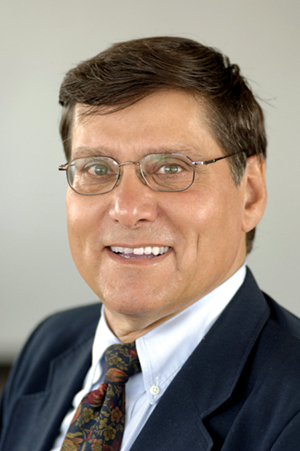It’s not often in criminal cases that lawyers are also the alleged victims. It’s even less common for them to help prepare the case against the alleged abuser.

But that happened in Winnipeg last week at the sentencing of Graham James, the notorious predator and abuser of young hockey players.
Readers will recall that James’ case prompted the federal government to revise its laws on granting pardons to restrict them in situations that would bring the justice system into disrepute. Parliament has since moved to eliminate pardons in cases involving convictions for serious sexual offences.
The most recent proceedings against James involved Ottawa lawyer Greg Gilhooly, who was a promising hockey player until James got hold of him and allegedly wreaked horror on his life. The alleged abuse began in the 1970s and lasted until Gilhooly escaped on a scholarship to university in the United States.
He survived it all and went to Princeton University and then on to the University of Toronto to become a lawyer. Last year, he reached out to help police with their investigation into James’ actions.
Gilhooly told his story to Jim Brown on CBC Radio’s The Current last week. He talked about how it felt to be both a lawyer and victim watching the proceedings during James’ final sentencing last week.
The saddest, most frustrating part for Gilhooly was not being able to testify against James. Part of Gilhooly’s concern is the notion that the legal system isn’t set up to do justice. It merely hands down legal results.
Gilhooly believes he may have been James’ first victim before Sheldon Kennedy, Theoren Fleury, Todd Holt, and as many as 75 other young boys.
Gilhooly said he reached out to police after Fleury’s book came out. “The book sent me spiralling,” Gilhooly recalled on the CBC program.
He told police his story of abuse and helped prepare the case against James. But in the end, he discovered to his immense frustration that he wouldn’t be testifying.
“My charges were stayed,” said Gilhooly with a hint of resentment.
“Graham only pleaded guilty to assaults against Fleury and Holt.”
Gilhooly noted he has no idea why James refused to plead guilty in his case despite doing so in the Fleury and Holt matters.
Was it vengeance? Was James playing a game? Was it because Gilhooly was his earliest alleged victim or because he knew Gilhooly had leaked the fact that James had received a pardon to the media? In any case, Gilhooly isn’t about to trouble himself with it.
“The problem the Crown faced was that Graham had been granted bail, and only in Canada can an already-serial predator, preying on children, be granted bail.
“Once Graham had bail, he was holding all the cards. He could plead to any number of charges, or not.
“Unfortunately, it was my set of charges he didn’t plead guilty to.”
He noted prosecutors came to him during the first week of December and told him James wasn’t willing to include his set of charges in his guilty plea.
“I was unbelievably upset,” Gilhooly said on The Current.
“I said to myself, ‘This is not what I signed up for.’ I was not looking for my charges to be stayed. It was frustrating. I was looking for some form of vindication and/or some validation. I wanted to lawyer the thing myself and be the Crown prosecutor going after Graham.”
But in the end, being a lawyer helped him come to terms with the fact that the charges related to him against James wouldn’t proceed.
He recalled taking a step back and reflecting over what the prosecutors had told him.
“I was in the end able to understand why the Crown did what it did. But at the time, the victim inside me was incredibly upset.”
He said he now realizes the Crown had valid reasons for what it did.
First, if the court were to convict James of assaulting three young hockey players instead of two, the difference wouldn’t significantly affect James’ sentence.
“On top of that, there was the bigger problem of the length and cost of the trial,” he noted.
“From the Crown’s perspective, it would be more difficult if there was a trial because witnesses would have to be called.
“There would have been any number of witnesses from that time with respect to what Graham did to me and to others who would have been called to testify against their wishes and who we believed were also victims.
“And the Crown doesn’t like to call victims of sexual assault to trial against their wishes. When I took a step back and understood what the Crown was doing, the lawyer inside me understood. But as a victim, it didn’t make me feel any better.”
On Tuesday morning, when the judge read out her sentence, Gilhooly said he ceased to be part of the case.
“I’m Citizen X, the same as you or your neighbour.”
Brown, the CBC interviewer, asked: “And an alleged victim?”
“Alleged! That’s a wonderful word that I will carry with me for the rest of my life,” Gilhooly responded. “Everything is alleged. Nothing is proven.”
Richard Cleroux is a freelance reporter and columnist on Parliament Hill. His e-mail address is [email protected].

 But that happened in Winnipeg last week at the sentencing of Graham James, the notorious predator and abuser of young hockey players.
But that happened in Winnipeg last week at the sentencing of Graham James, the notorious predator and abuser of young hockey players.